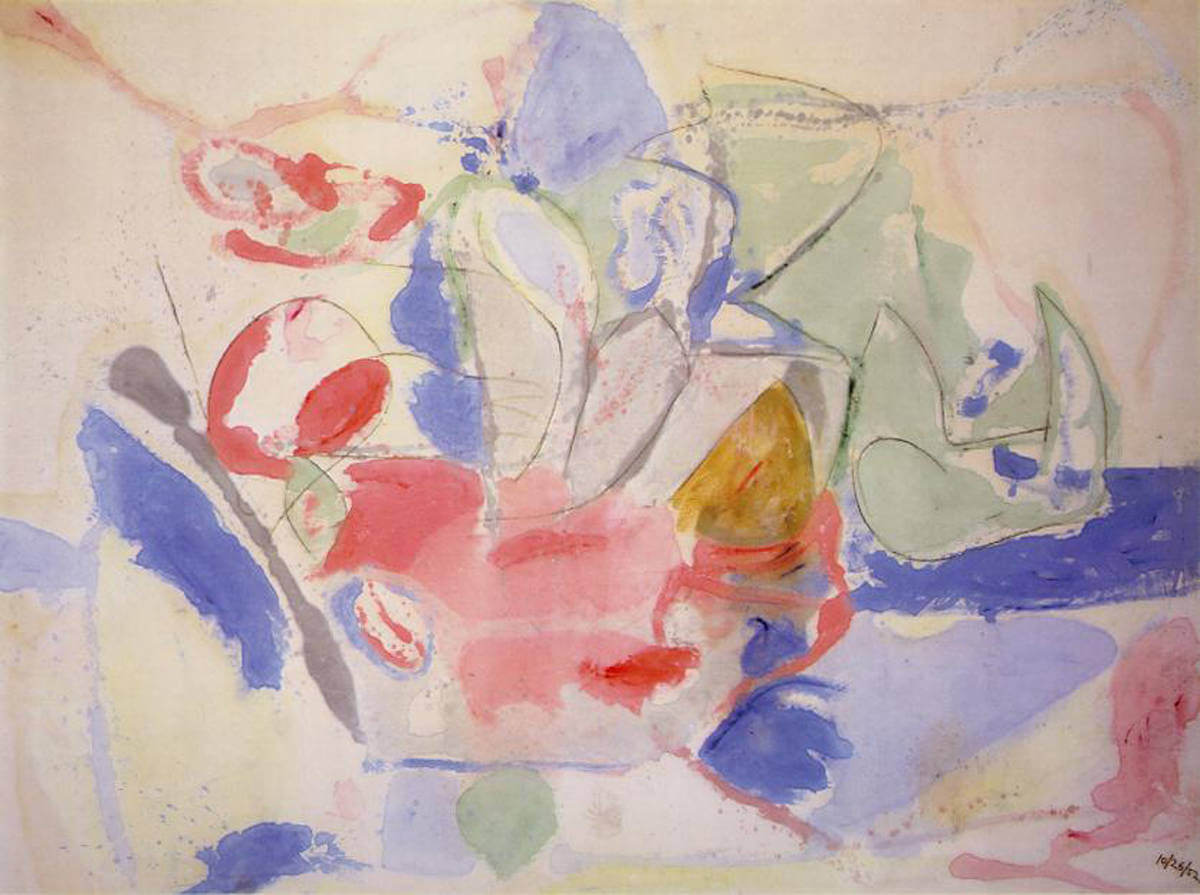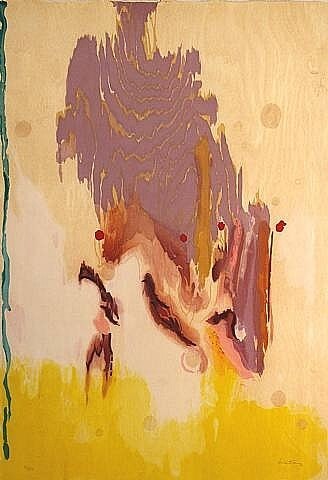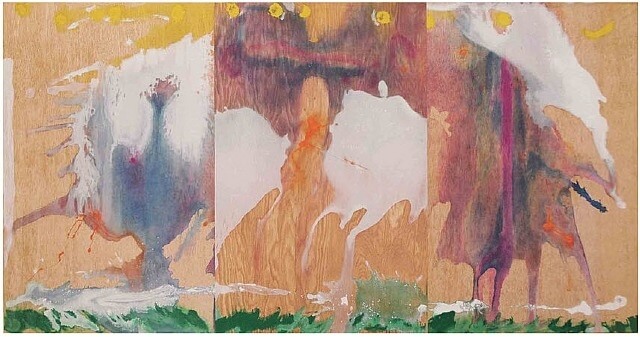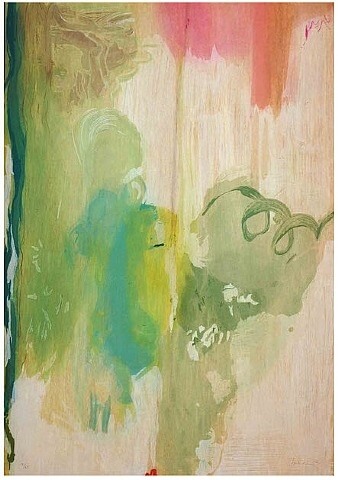Painter Helen Frankenthaler, a key member of the New York School, died today in Connecticut. Frankenthaler, energized by Jackson Pollock’s all-over method of painting, pioneered the technique of pouring paint onto unprimed canvas early in her career. Radical at the time, this technique was memorialized in Emile de Antonio’s seminal film Painters Painting. She noted: “I did not want a small gesture, standing at the easel with a sable brush … I literally wanted to break free, put it on the floor, throw the paint around… “ 1
Frankenthaler took improvisation to new heights. In a 2003 interview with Ted Loos, Frankenthaler noted that “her decision-making process was wholly unregimented. ‘There is no ‘always,’… No formula. There are no rules. Let the picture lead you where it must go.” This experimental, free form approach to painting also led her to make unprecedented strides in abstract printmaking – particularly woodblock printing. Through overprinting (sometimes thirty or more layers) she was able to emulate the fluid, process oriented mark-making also found in her poured painting.
Frankenthaler described her own work as “pictures [that] are full of climates, abstract climates and not nature per se, but a feeling… “ 2 She was uniquely able to coax cogency from painterly accident – achieving images that are a unique blend of eastern and western styles and recalling at once calligraphic landscape painting and analytic cubism.
Notes
1 Quoted in a clip from Helen Frankenthaler, Video portrait, John Feldman. Commissioned by Purchase College School of the Arts for the 2008 Nelson A. Rockefeller Awards.
2 Ibid.



